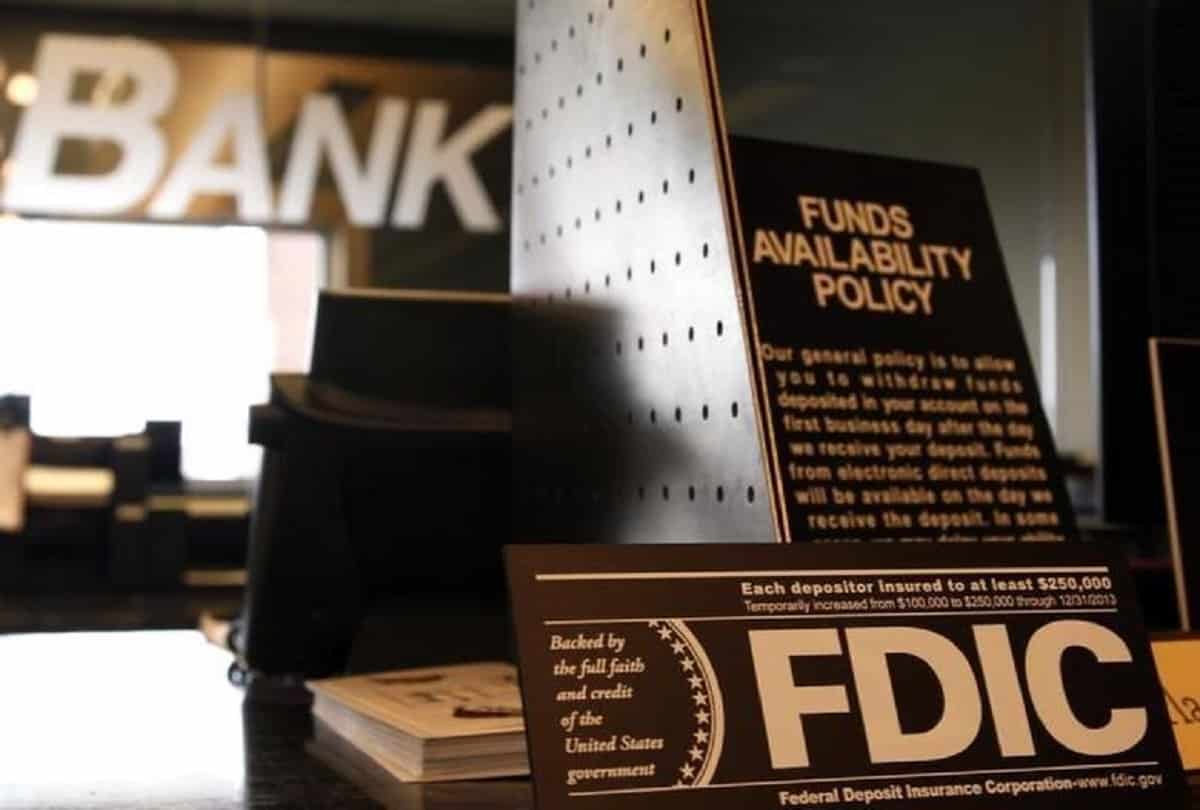Regulation
Tornado Cash Developer Gets 64 Months In Prison For $1.2B Laundering

Alexey Pertsev, the developer of Tornado Cash, has been handed a prison sentence of 64 months by a Dutch court. The ruling is in response to his involvement in money laundering activities totaling $1.2 billion. The verdict was delivered at the s-Hertogenbosch court on Tuesday, May 14.
Alexey Pertsev Sentenced To 64 Months Prison
The above-mentioned judgement against the Tornado Cash developer marks a decisive moment in the legal battle against illicit financial practices within the crypto space. Moreover, Pertsev’s indictment outlined a pattern of money laundering spanning from July 9, 2019, to August 10, 2022. During this period, he allegedly facilitated transactions with criminal origins through the Tornado Cash platform.
In addition, the court deemed Pertsev complicit in the illegal activities. It also emphasized that he should have been aware of the illicit nature of the transactions. Furthermore, this ruling sets a precedent that could impact future trials involving other Tornado Cash developers.
Roman Storm and Roman Semenov, co-developers of the crypto mixer, are also facing accusations of money laundering and sanctions violations in the United States. Storm was apprehended last year following Tornado Cash’s addition to the U.S. sanctions watchlist. Moreover, he is scheduled for trial in September 2024. However, Semenov remains at large, with no reported arrests at present.
Also Read: China Cracks Down On $300M Crypto Exchange Fraud, Arrest 6
Verdict Labels Tornado Cash As A Tool For Criminals
The verdict stated, “Tornado Cash does not pose any barrier for people with criminal assets who want to launder them.” The statement poses threat to the ‘privacy’ feature that crypto community craves for. However, crypto illicit actors often leverage such tools for their advantage. For instance, the Poloniex hackers used the platform to launder over $53 million of Ethereum (ETH).
Moreover, the court based its decision on Tornado Cash’s lack of scrutiny against the laundering of criminal assets. The ruling added, “That is why the court regards the defendant guilty of the money laundering activities as charged.” Nonetheless, Pertsev’s legal team could file an appeal to the verdict.
Initially jailed in the Netherlands in August 2022, the developer faced repercussions after Tornado Cash was blacklisted by the U.S. government. The U.S. Treasury alleged that Tornado Cash served as a crucial tool for the North Korean hacking group, Lazarus. Furthermore, Lazarus Group’s involvement in a $625 million hack of Ronin Network, powered by Axis Infinity, and other significant crypto thefts further heightened concerns.
Also Read: Ethereum ETF Approval Odds On Edge As SEC Unveils Major Notice
The presented content may include the personal opinion of the author and is subject to market condition. Do your market research before investing in cryptocurrencies. The author or the publication does not hold any responsibility for your personal financial loss.
Regulation
US SEC Drops Charges Against Hawk Tuah Girl Hailey Welch

Hawk Tuah girl Hailey Welch, known for her association with the controversial $HAWK token, has been cleared of any wrongdoing after a lengthy investigation by the U.S. Securities and Exchange Commission (SEC). The SEC has decided not to press charges against Welch in connection with the rapid rise and subsequent collapse of the meme-based cryptocurrency.
US SEC Investigation Into Hawk Tuah Girl Concludes Without Charges
The SEC had launched an investigation into the $HAWK token after its dramatic price drop. The token, which was linked to Welch’s viral persona, initially saw a market cap surge to $490 million before crashing by over 90%. Investors who were impacted by the crash filed a lawsuit against those behind the project, alleging that the coin had been promoted and sold without proper registration.
Hawk Tuah girl Hailey Welch, who cooperated fully with the investigation, expressed relief after the SEC’s decision. “For the past few months, I’ve been cooperating with all the authorities and attorneys, and finally, that work is complete,” Welch told TMZ.
Her attorney, James Sallah, confirmed that the SEC had closed the case without any findings against her, adding that there would be no monetary sanctions or restrictions on Welch’s future involvement in cryptocurrency or securities.
This Is A Developing News, Please Check Back For More
Disclaimer: The presented content may include the personal opinion of the author and is subject to market condition. Do your market research before investing in cryptocurrencies. The author or the publication does not hold any responsibility for your personal financial loss.
Regulation
Sonic Labs To Abandon Plans For Algorithmic USD Stablecoin, Here’s Why

Barely a week after hinting at launching an algorithmic USD stablecoin, Sonic Labs is shuttering its plans. Sonic Labs co-founder Andre Cronje revealed that incoming stablecoin regulation in the US contributes to the change of stance.
Sonic Labs Makes U-Turn Over Algorithmic USD Stablecoin
In mid-March, Sonic Labs disclosed plans for a yield-generating algorithmic stablecoin for its blockchain. However, new developments in the US regulatory landscape are forcing the company to ditch its algorithmic stablecoin ambitions.
Sonic Labs co-founder Andre Cronje confirmed the change in direction via an X post following the release of the full draft of the STABLE Act by Congress for clearer oversight. According to the text, lawmakers are pushing for a two-year moratorium on algorithmic stablecoin, souring Sonic Labs plans.
Unlike mainstream stablecoins backed by fiat or other commodities, algorithmic stablecoins rely on smart contracts to maintain their peg. The 2022 implosion of Terra’s ecosystem following the de-pegging of its TerraUSD (UST) algorithmic stablecoin stunned regulators.
“We will no longer be releasing a USD-based algorithmic stablecoin,” said Cronje.
In a light-hearted note, community members teased potential strategies for Sonic Labs to sidestep incoming stablecoin regulation. Apart from the loophole of launching the algorithmic stablecoin before the regulation goes live, Cronje teased an algorithmic dirham that will be denominated in USD.
Industry Players Are Bracing For New Stablecoin Regulations
Stablecoin issuers are steeling themselves for incoming stablecoin regulations in the US. While the GENIUS Act and STABLE Act continue to inch forward, there are common denominators in both bills.
For starters, there is the requirement for equivalent reserves at a 1:1 ratio with both bills steering clear of algorithmic stablecoins. The White House is favoring the GENIUS Act over the STABLE Act as lobbyists rally to stifle the possibility of a Conference Committee.
Authorities are targeting stablecoin regulation to reach Trump in two months as issuers jostle for position. Tether, Circle, and Ripple are staking their claims to lead the US government’s ambitions to rely on stablecoins to maintain the dollar’s dominance.
Disclaimer: The presented content may include the personal opinion of the author and is subject to market condition. Do your market research before investing in cryptocurrencies. The author or the publication does not hold any responsibility for your personal financial loss.
Regulation
FDIC Revises Crypto Guidelines Allowing Banks To Enter Digital Assets

The Federal Deposit Insurance Corporation (FDIC) has updated its guidelines, enabling banks to engage in cryptocurrency-related activities without seeking prior approval. This new policy shift signals a change in the FDIC’s approach to the growing role of digital assets in the banking sector.
New FDIC Guidelines on Crypto-Related Activities
The FDIC has issued a new Financial Institution Letter (FIL-7-2025), which provides updated guidance for banks looking to engage in cryptocurrency activities. The new guidance rescinds the previous policy set out in FIL-16-2022, which required banks to notify the FDIC before engaging in such activities.
Under the new rules, banks can now participate in permissible crypto-related activities without waiting for FDIC approval, as long as they manage the risks appropriately.
This change is seen as a shift in the FDIC’s stance, following the agency’s earlier stance that required prior approval for crypto engagements. FDIC Acting Chairman Travis Hill expressed that this new approach aims to establish a more consistent framework for banks to explore and adopt emerging technologies like crypto-assets and blockchain.
“With today’s action, the FDIC is turning the page on the flawed approach of the past three years,” said Hill in a statement.
This Is A Developing News, Please Check Back For More
Disclaimer: The presented content may include the personal opinion of the author and is subject to market condition. Do your market research before investing in cryptocurrencies. The author or the publication does not hold any responsibility for your personal financial loss.
-

 Regulation22 hours ago
Regulation22 hours agoFDIC Revises Crypto Guidelines Allowing Banks To Enter Digital Assets
-

 Market24 hours ago
Market24 hours agoPopular Analyst Peter Brandt Identifies XRP Head & Shoulder Pattern, Reveals Path To Take
-

 Market23 hours ago
Market23 hours agoWhat to Expect from XRP Price in April 2025
-

 Market18 hours ago
Market18 hours agoWhy Did MUBARAK Drop 40% Despite Binance Listing?
-

 Altcoin22 hours ago
Altcoin22 hours agoShiba Inu Price Set To Repeat History? Falling Wedge Pattern Shows A Rally
-

 Altcoin17 hours ago
Altcoin17 hours agoAnalyst Reveals Bullishness On Ethereum Price At This Point, Can It Hit $4,000 Again?
-

 Regulation21 hours ago
Regulation21 hours agoSonic Labs To Abandon Plans For Algorithmic USD Stablecoin, Here’s Why
-

 Market21 hours ago
Market21 hours agoCoinbase Users Lost $46 Million to Crypto Scams in March
























✓ Share: